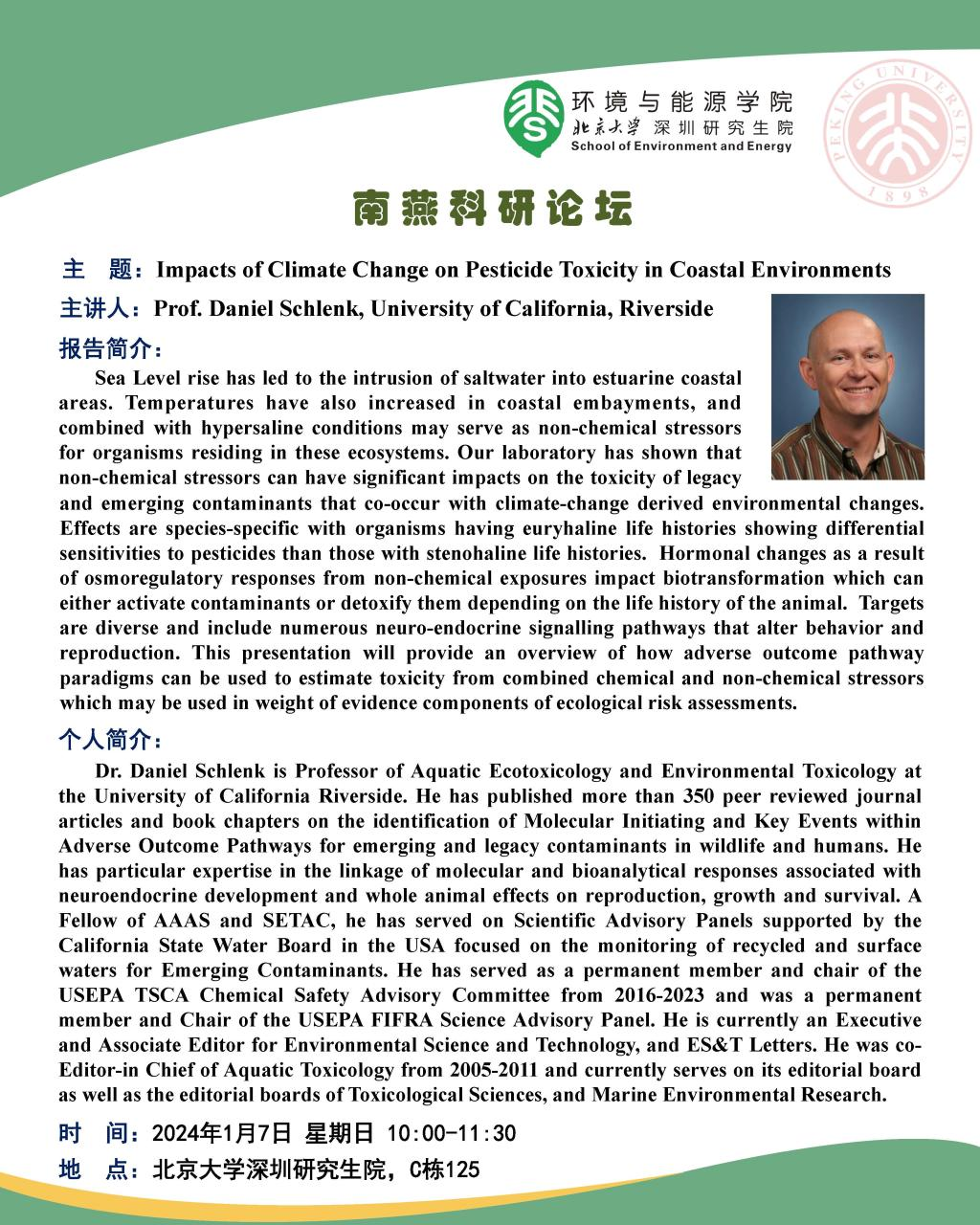
Speaker: Prof. Daniel Schlenk, University of California, Riverside
Time: 10:00-11:30 a.m., January 7, 2024, GMT+8
Venue: RM125, C Building
Abstract:
Sea Level rise has led to the intrusion of saltwater into estuarine coastal areas. Temperatures have also increased in coastal embayments, and combined with hypersaline conditions may serve as non-chemical stressors for organisms residing in these ecosystems. Our laboratory has shown that non-chemical stressors can have significant impacts on the toxicity of legacy and emerging contaminants that co-occur with climate-change derived environmental changes. Effects are species-specific with organisms having euryhaline life histories showing differential sensitivities to pesticides than those with stenohaline life histories. Hormonal changes as a result of osmoregulatory responses from non-chemical exposures impact biotransformation which can either activate contaminants or detoxify them depending on the life history of the animal. Targets are diverse and include numerous neuro-endocrine signalling pathways that alter behavior and reproduction. This presentation will provide an overview of how adverse outcome pathway paradigms can be used to estimate toxicity from combined chemical and non-chemical stressors which may be used in weight of evidence components of ecological risk assessments.
Source: School of Environment and Energy, PKU
